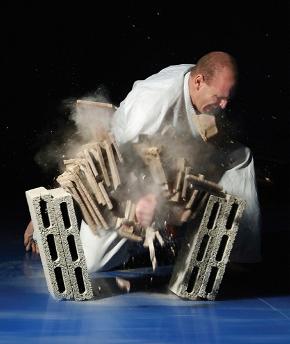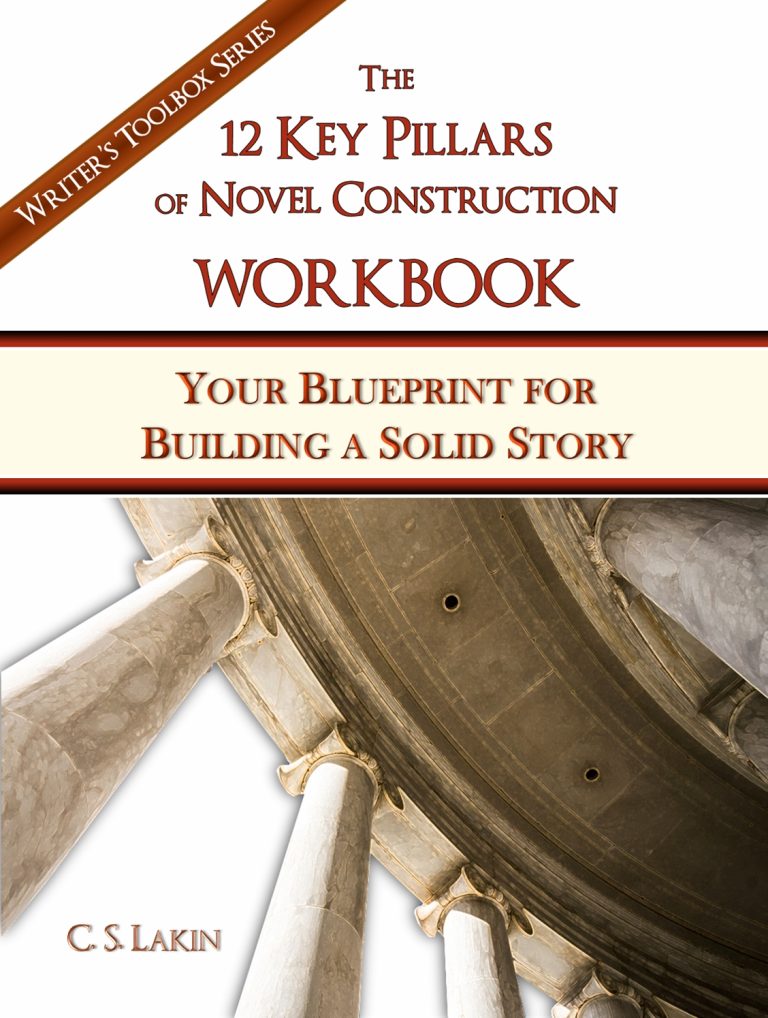Developing a Scene Outline for Your Novel
Writing a novel is a challenge. If you’ve done it (or tried to), you understand. I’m a big proponent of plotting my novels in advance. While many writers dislike plotting and feel comfortable “pantsing,” it can take a lot of years and practice to get down novel/story structure well enough to “wing it” and come out with a solid story.
I do believe that even pansters can benefit by some basic plotting, and putting together a simple outline is a great way to start coalescing ideas and pieces of story into some organization. I’ve worked with countless (well, at least I’ve never tried to count them all) writers at the outline stage, and I’ve seen what appears to work best—not just for them but also for me as an author.
The first stage is to get all those drifting ideas down onto something tangible: index cards, a notepad, a Word doc, Scrivener. Whatever you’re comfortable working in. I find that taking some weeks or months to let an idea simmer and grow into a premise and finally to a fully fleshed-out plot works best. Keeping a folder to stuff ideas into helps tremendously, whether you jot a scene idea on an index card or you have various pages for your character ideas, plot elements, relationships, twists, etc.
I’m going to share some things I hope will help you in the early stages of your brainstorming and plotting to make the process less overwhelming and more organized.
Bullet Lists Used Strategically
Once I have most of my plot in hand and have dozens of scene ideas, I pay attention to what and how I want to drip in the key information my readers need to know. This is very important. Why? Because you don’t want to explain everything in early info dumps. That’s amateur writing.
So as you are laying out your plot, you want to think about all those crucial bits of info that need to be included and where/when you need to drop them in. The more mystery and hints and pieces you can gradually put together, the more microtension you create. Which converts to hooked readers who want to keep turning pages to find out what you’re building to.
Below is an example of the kind of early scene outline I do. You’ll note in these scene summaries I have bullet points telling me what bits of info I need to bring into the scene organically (usually via dialogue or a brief character “thought”). This works great for me because as I skim through my outline, I can review those bullet points, move them around, add/delete some. Often I’ll find as I’m writing the scene that one point really doesn’t fit well, so I move it to another scene. I will paste each chunk of text for the scene (the summary and bullet points) right into my scene, at the top, to use as a compass to keep me on track with the purpose of my scene.
Here are the first scenes for my psych-suspense Lightning Man:
Opening scene. Friday August 23. Setup. Incident in the park, up off trail in the high country. Justin is with another park ranger, Denise, and they track down and fight two violent men as storm clouds fill the sky. Showcases Justin’s powers at work—sets up paranormal elements.
Establishes:
-
- Works as a ranger. Second year at Rainier, hired by chief Watros with reservation
- Was in ATF for five years, left on disability
- Was struck 7 times (really 8), last time in GA when doing FLECT training
- Rogue personality that others are uncomfortable with
- Perfect sense of direction
- Feels lightning is his enemy
- Has issues with memory (says that’s why he was taken off ATF on disability).
- Jayden helped him get his job as ranger
- Worked on the joint task force with local office ATF along with FBI, etc, as a park ranger
Scene 2 – Chapter 2 Same day, evening:
At the Lightning and Electrocution Symposium in Seattle near the Space Needle (can see it through windows). Day 2 of the conference with doctors, scientists, researchers, survivors. Justin, guest speaker, reveals his intellect, his experiences, shares case studies.
Talks to mentor Eldrick, who asks about him, his mom. Eldrick hopes Justin is still going to therapy. Says he has to, required to keep his job. Eldrick doesn’t believe lightning is his enemy. Says God doesn’t punish like that. As walks out with Tony, a kid he’s helping, he hears an explosion. It’s a bomb, and close. Justin rushes toward a building crashing to the ground as dust fills the air.
Establish:
-
- Justin moved from Florida with family when twelve (Florida has more lightning than any other state in the country).
- Met Eldrick, professor, at TESC, where Justin was studying biochemistry and atmospheric sciences, after he’d been hit by lightning out running (he thinks it was the first strike)
- How damaging it is for most who are hit by lightning
- His mom on drugs, fighting depression, Justin worried, blames Dad
- Still undergoing therapy, which he thinks is a waste
Chapter 3 – Interlude: Gus’s narrative journal #1:
Gus (one of the four terrorists) tells how he tore up the VA hospital, angry over the mistreatment of his close Army Ranger buddy. Was told to journal to work out his anger, so he’s writing his daughter.
Chapter 4, later Friday night, after bombing:
At site of bombing. The VA targeted. Meets with Jayden Willis, ATF SAC, joint task force for domestic terrorism (JTTF) called in—Justin was on it a couple of years ago. Discusses they found high-explosive (perhaps ANFO) with a detonator, timer. TEDAC will examine the IED pieces. Explosives Unit of FBI there. Jayden wants Justin back on the task force for this one because of his special skills. Local news call in—note sent to station. There will be more bombs, each one worse. Former girlfriend Shayla and Noser show up—tension because of past relationship. Justin says some on the task force don’t want him there. Jayden doesn’t care; he wants him. Justin says they seem to have plenty of help; they don’t need him. His specialty is rural ops. He misses the action but he can’t handle all the bureaucracy and politics. He’s better a loner. Hopes they catch their man. Goes to check in on mom.
Establish:
-
- Was reprimanded in ATF for disobeying orders. Saved a drowning boy’s life, doesn’t know why he did that.
- Lived with Shayla a year. She couldn’t take him any longer, broke it off. He still loves her but knows he’s damaged goods. She was right to break it off.
- Tries hard to hide his memory lapses
- Close bond with Jayden, who knows what a great SRT agent Justin was and has compassion regarding his disabilities. Got him his job at the park
Notice that the summaries of the plot action for the scene are fairly short. Later, I might go further into detail, but usually I work off this type of scene prompt. Having that bullet list helps to focus me and ensure I don’t leave out setting up the important backstory. Also it prevents me from repeating in future scenes accidentally.
Outlining your scenes may make the difference between a so-so book and a great one. It may make the difference between a story that drags and seems to wander aimlessly and one that has riveting, tight pacing and high tension on every page.
The biggest reason novels drag and bore readers, to me, is the lack of strong scenes—scenes that are constructed carefully and include everything necessary to move the story forward purposefully and with economy.
What do I mean by economy? I mean not filling pages with unimportant material. Not showing characters doing boring things that have no significance. Not showing dialogue that accomplishes little to advance or complicate the plot.
Every word on every page is valuable. I often liken the pages of your book as valuable real estate. What if you got paid $1 for every perfect, necessary, useful, or ideal word you wrote on each page? What if you got fined for every useless, clunky, unnecessary, or boring word you used? Would you be rich or broke by the time the reader got to “the end”? Something to consider.
I critique a lot of manuscripts. Most of them need a lot of work, particularly with scenes. Some of the problem has to do with scene structure. Some has to do with the purpose of the scene in the overall story. I created this scene template to help my clients lay out their scenes in a way that would help them think carefully about their choices.
If you’re ready to take your basic scene summaries to the next level, consider including the elements I note in my scene template. Here are the sections on my scene template (which you can download here):
Scene # ____
Locale:
Time of day:
Time of year:
Weather:
How much time passed since previous scene with this character:
POV character for the scene:
Scene summary:
What main way is the story advanced? What new plot points are revealed?
What conflicts/obstacles are presented in the scene?
How does the POV character change or grow by the end of the scene?
THE high moment or key info revealed in scene:
Important backstory bits revealed in scene:
World-building or specific setting/locale details brought out:
These are the key elements needed to be thought out and decided for each of your scenes. Writers who have used this template have found it so much easier to write their novel. It’s one thing to know what you want your novel to be about; it’s another thing to ensure you have just the right scenes in the right order to tell that story in the best way.
Whether you have completed a full draft of your novel or you’re only partway through, consider creating a scene outline and having me critique it.
It usually takes me about 3-5 hours to review and comment on a scene outline. All you need to do is use that template, one page per scene. If you only have part of your novel done, having me review what you have so far is a great way to stop to see how well you’re building your story. You can either combine all your completed template pages together into a Word doc, or distill the key components of each scene (addressing all the above items) into one long paragraph (per scene), then put that in an outline and send to me.
You’ll find this is perhaps THE best way to get a clear overview, like a bird’s-eye view, of your story and scene structure.
Contact me and let’s discuss! Seriously, this will be money well spent.
And for the best, deepest instuction into writing solid scenes, take my online course 8 Weeks to Writing a Commercially Successful Novel. Hundreds of writers have learned time-tested, essential skills to crafting scenes that are powerful and purposeful.
Featured Photo by Kelly Sikkema on Unsplash











